
Publishing Credits
Corinne Burton, M.A.Ed., Publisher;
Kimberly Stockton, M.S.Ed., Vice President of Education;
Conni Medina, M.A.Ed., Managing Editor;
Sara Johnson M.S.Ed., Content Director;
Kristy Stark, M.A.Ed., Editor;
Kyleena Harper, Assistant Editor;
Lee Aucoin, Multimedia Designer;
Grace Alba Le, Production Artist
Shell Education
5301 Oceanus Drive
Huntington Beach, CA 92649-1030
http://www.tcmpub.com/teachers
ISBN 978-1-4258-1513-4
2016 Shell Educational Publishing, Inc.
The classroom teacher may reproduce copies of materials in this book for classroom use only. The reproduction of any part for an entire school or school system is strictly prohibited. No part of this publication may be transmitted, stored, or recorded in any form without written permission from the publisher.
Excerpts from the books Rome, Bug Builders, Jane Goodall, Amazon Rainforest, Nelson Mandela: Leading the Way, Roberto Clemente, Unforgettable Natural Disasters, and Unforgettable News Reports are found on the Digital Resource CD. Full versions of these books can be purchased on www.teachercreatedmaterials.com/administrators.
*All names used in this book are pseudonyms.
 Table of Contents
Table of Contents
Foreword
I still vividly recall my elation the first time I heard about Response to Intervention (RTI). I was filled with a sense of hope that an RTI design could embrace every learner. Sadly my hope soon dissipated as I saw RTI unfold in the trenches and I was reminded that what we do is inconsequential without a clear vision for why we do it and how to do it in the most effective ways. Questionable interpretations and implementations spurred by books, websites, seminars, and a virtual flood of programs made me fear that the promise I saw in RTI had become lost in the marketplace shuffle. As my hope had faded from view, I wrote a book titled RTI from All Sides: What Every Teacher Needs to Know in response to time-wasting non-solutions far removed from the students they purported to support.
Thankfully, Laura Robbs powerhouse book has reawakened my sense of hope. The Reading Intervention Toolkit brings the RTI promise back into focus as quick fixes and silver bullets are transformed into the authentic differentiated practices and targeted supports worthy of the lives RTI is intended to enrich. Each strategy is based on high-engagement instruction and interventions grounded in reading and writing that is repositioned in the hands of knowledgeable teachers. No fluff. No stuff. No silliness. No spreadsheets that reduce students to numbers. No one-size-fits-all recommendations that suck the very heart and soul from RTI. Laura redefines RTI as instructional excellence with students at the center of our efforts through flexible practices that put teachers face-to-face with children.
Why is The Reading Intervention Toolkit needed now more than ever? Based on a study exploring the negative impact of RTI, the research suggests that this is the result of three possible missteps: 1) incorrect selection of students, 2) mismatch between student needs and the interventions provided, and 3) misalignment between core instruction (Tier 1) and the interventions offered. The study illustrates that well meaning but misinformed applications of RTI may have led to its demise. In short, RTI did not fail us; we failed RTI (Sparks 2015).
Two things set Lauras book apart so that we can reclaim the RTI potential. First, she reminds us that nothing we do in the name of RTI will be adequate without active engagement in reading and writing with interventions to address specific needs of students based on daily assessment in the heat of learning moments. This lofty but achievable goal is reiterated by Richard Allington (2006). He states:
Struggling readers need larger amounts of more expert, more personalized, and more intensive reading instruction. In the end, the quality of that instruction is critical, and high-quality instruction for struggling readers cannot simply be boxed up and shipped to a site (20).
Laura broadens our canvas beyond isolated skill and drill that has plagued RTI. Strategy ideas focus on differentiated practices at increasing levels of intensity that can be embedded across the school day, regardless of time constraints. Flexible support options in a context of daily learning range from five to 40 minutes, affording varied layers of instructional intensity from making the rounds to teach, reteach, reinforce, and assess in on-the-spot learning to the increasingly intensive interventions designed to accelerate progress in small-group and side-by-side settings. Read-aloud, shared, guided, and independent practice form an overarching support umbrella of powerful, intentional, open-ended options.
The second thing that sets Lauras book apart from others is illustrated in Pernille Ripps cautionary advice: If we focus more on the intervention than the child that needs it, we have lost our way (1). Laura repositions our efforts on students in a myriad of ways. The Reading Intervention Toolkit is a love note to teachers from her first words in the introduction, Classroom Teachers Can Reach and Support All Readers. These eight words represent the spirit of this book and Lauras deep belief that the foundation of RTI resides in maintaining Tier 1 teachers as decision makers. Each suggestion revolves around high-interest texts within meaningful literacy events through teacher-supported oral reading, one-to-one conferring, small-group instruction, peer supported partner work, and independent application. She acknowledges the role of motivation with choice, interest, and engaging talk, demonstrating her commitment to increasing the volume of reading and writing, rather than dancing around it.
Throughout this book, Laura shows us how to accomplish a renewed RTI purpose. She demonstrates that immersion in active and joyful literacy is the work of RTI, citing three key oft-missing intervention ingredients: instruction using engaging books, discussion of self-selected books for independent reading, and listening to teachers read aloud. She offers classroom snapshots to give strategy ideas a face with teacher tips and suggestions to continue the conversation at the end of each chapter. Page after page, Laura whispers words of wisdom in our ears to help us elevate conferences and initiate interventions based on the needs of students. Lauras words are a testament to expert, personalized, and intensive reading instruction focused squarely on the child that needs it. In Lauras own words:
The goal of all intervention in grades 4 to 8 is to help students comprehend, interpret, and analyze reading materials, as well as improve their motivation to read, write, think, and discuss. Targeted interventions are focused lessons designed for students who need extra support in reading and writing (15).
The time has come to demonstrate a sense of urgency that will change the direction of RTI. For too long, tiers have been relegated to real estate over shared responsibility. For too long, targeted support has been removed from the first line of defense where moment-to-moment daily support can be offered. For too long, interventions have been trivialized with the stuff far removed from our vision of best practices. For too long, we have ignored the serious, thoughtful, informed, responsible state of the art of teaching (Zemelman, Daniels and Hyde) that comes from meaningful, authentic, purposeful, and intentional teaching in the hands of teachers with a deep knowledge of literacy instruction. For too long, we have viewed RTI as the end goal when the success of students is our first priority.

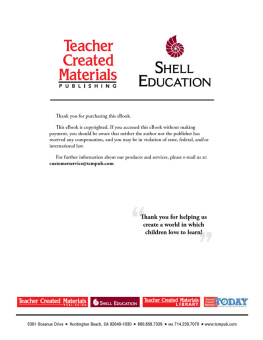
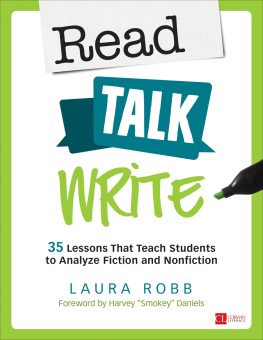

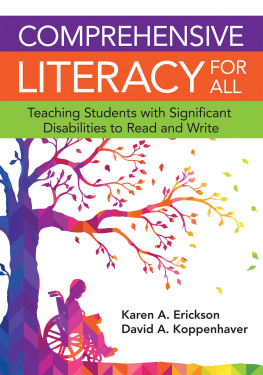
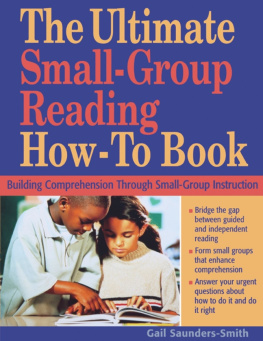
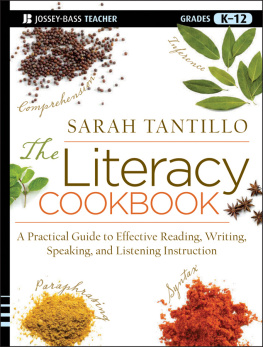
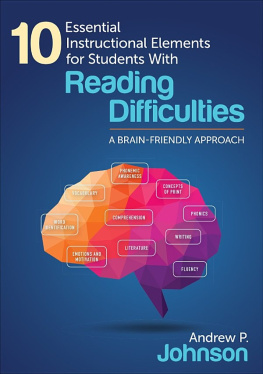
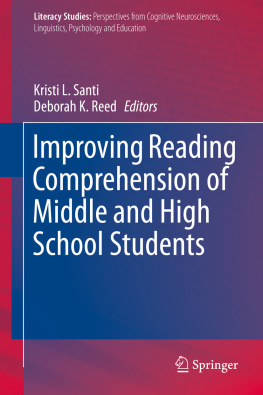
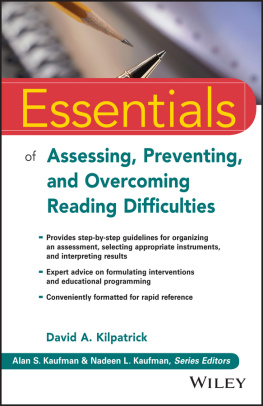
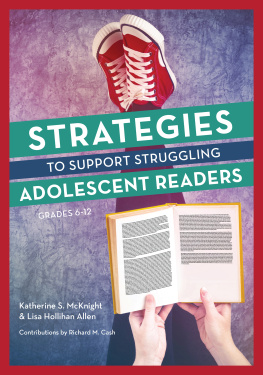
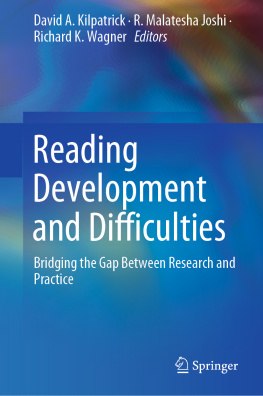
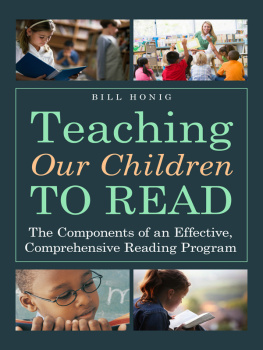



 Table of Contents
Table of Contents